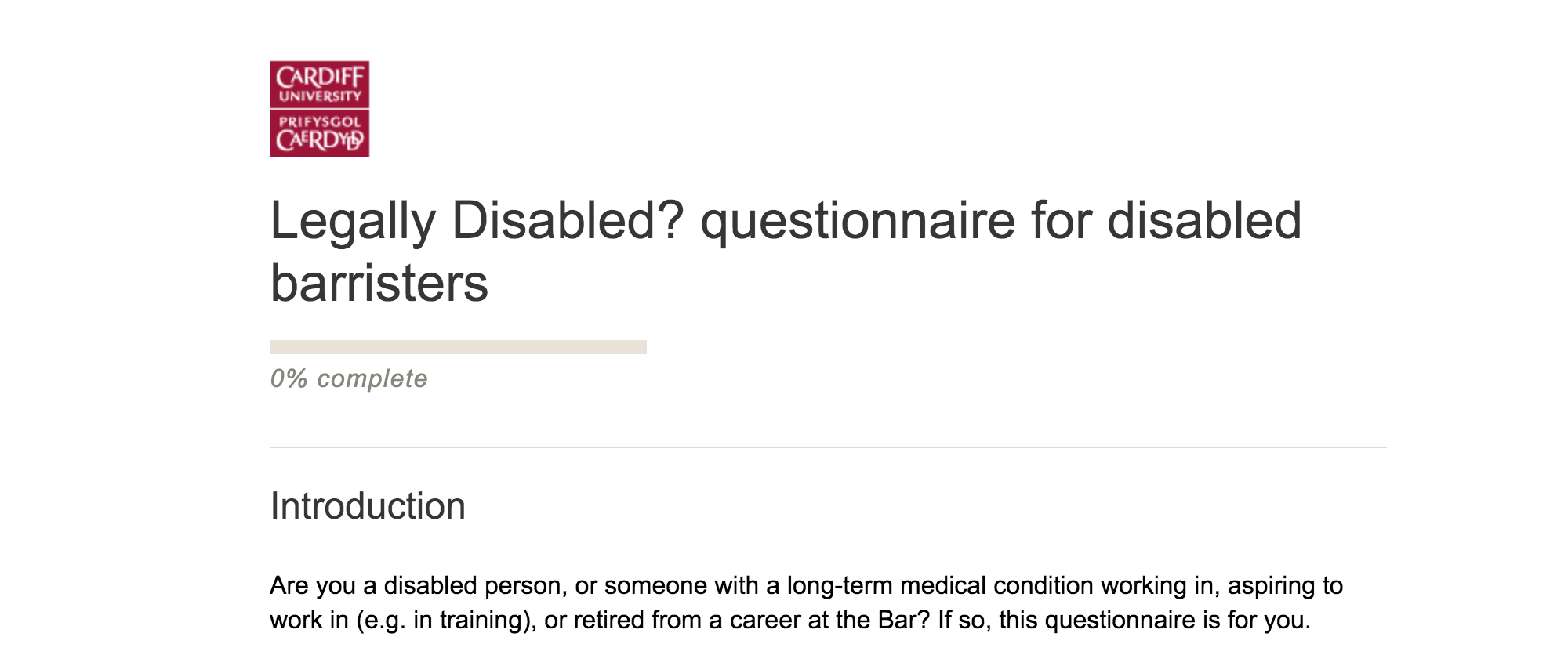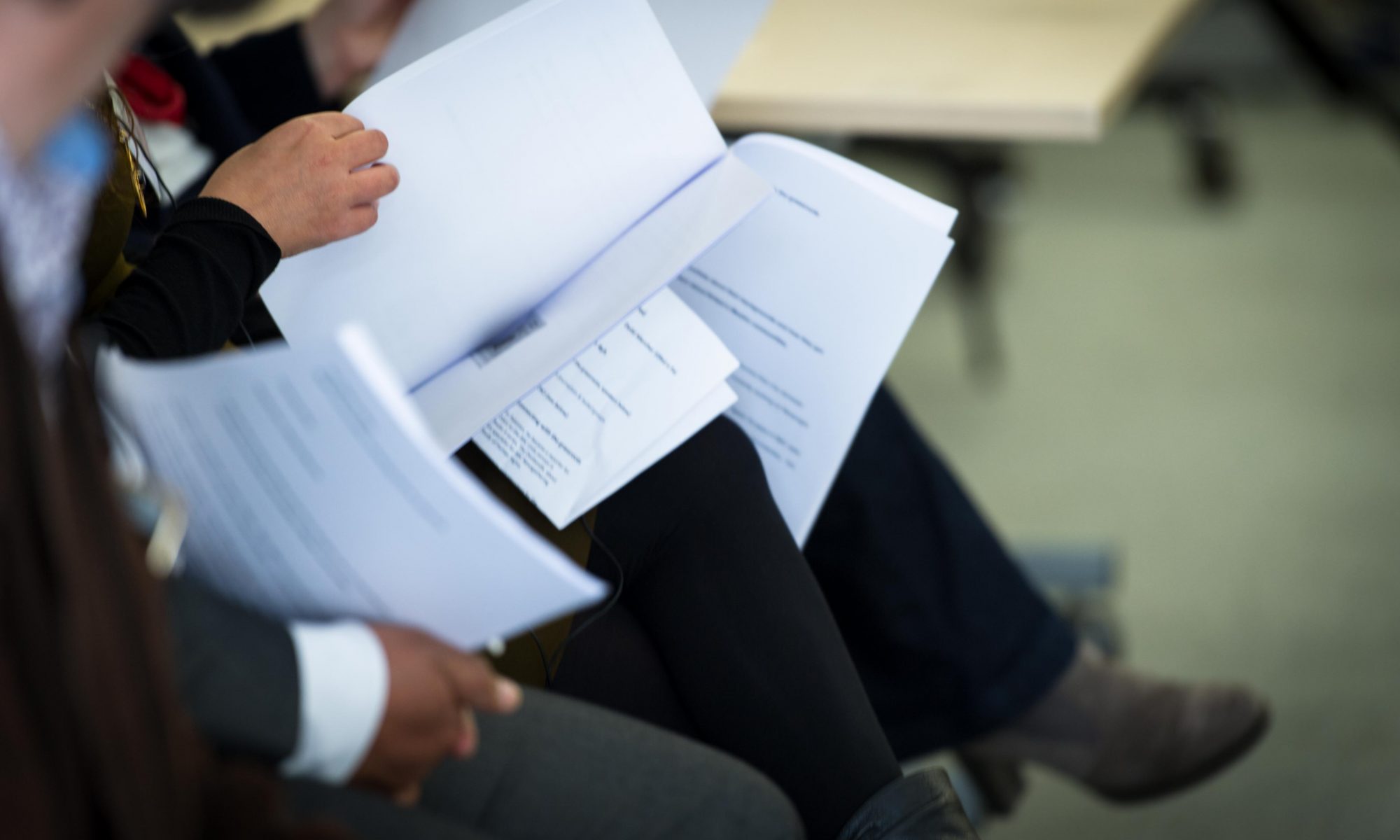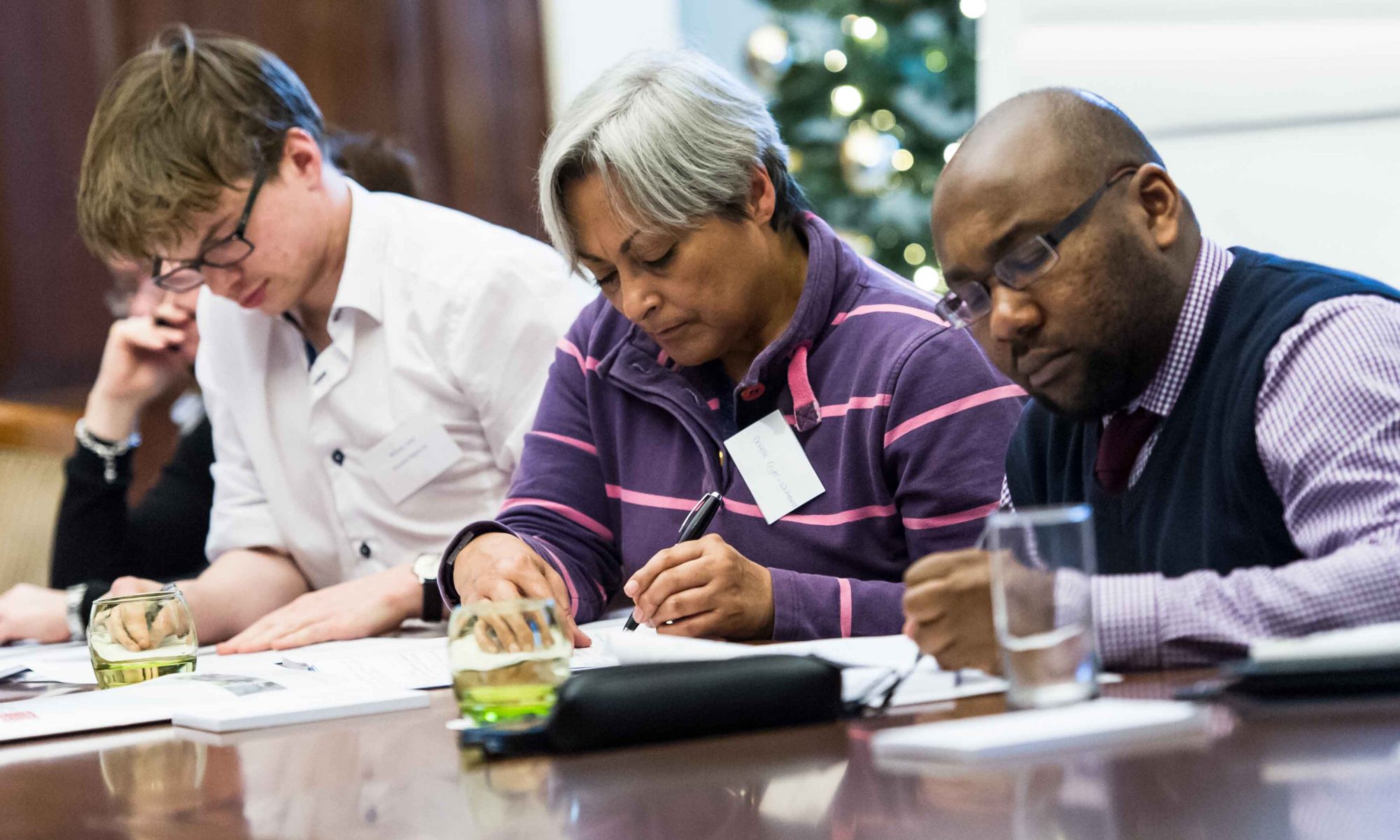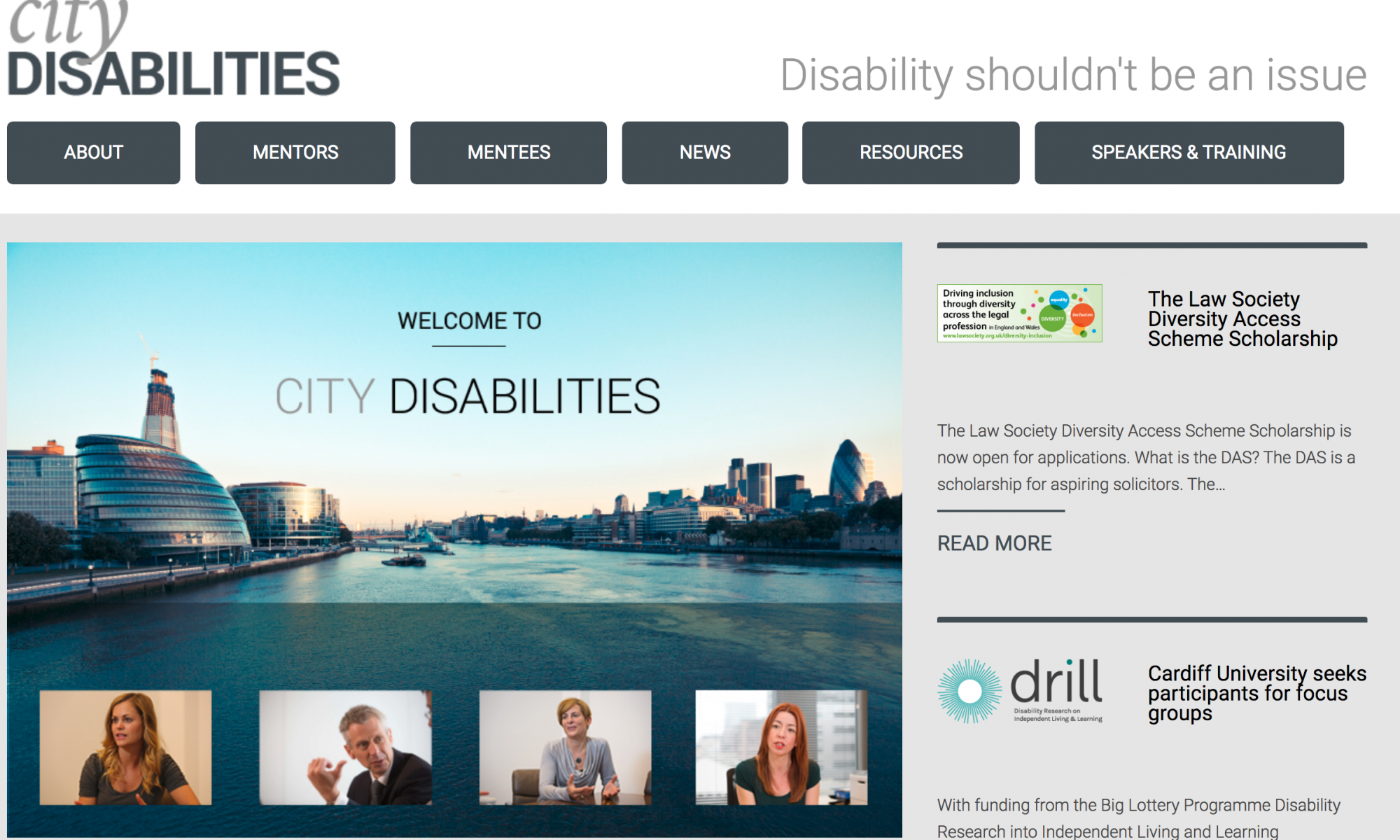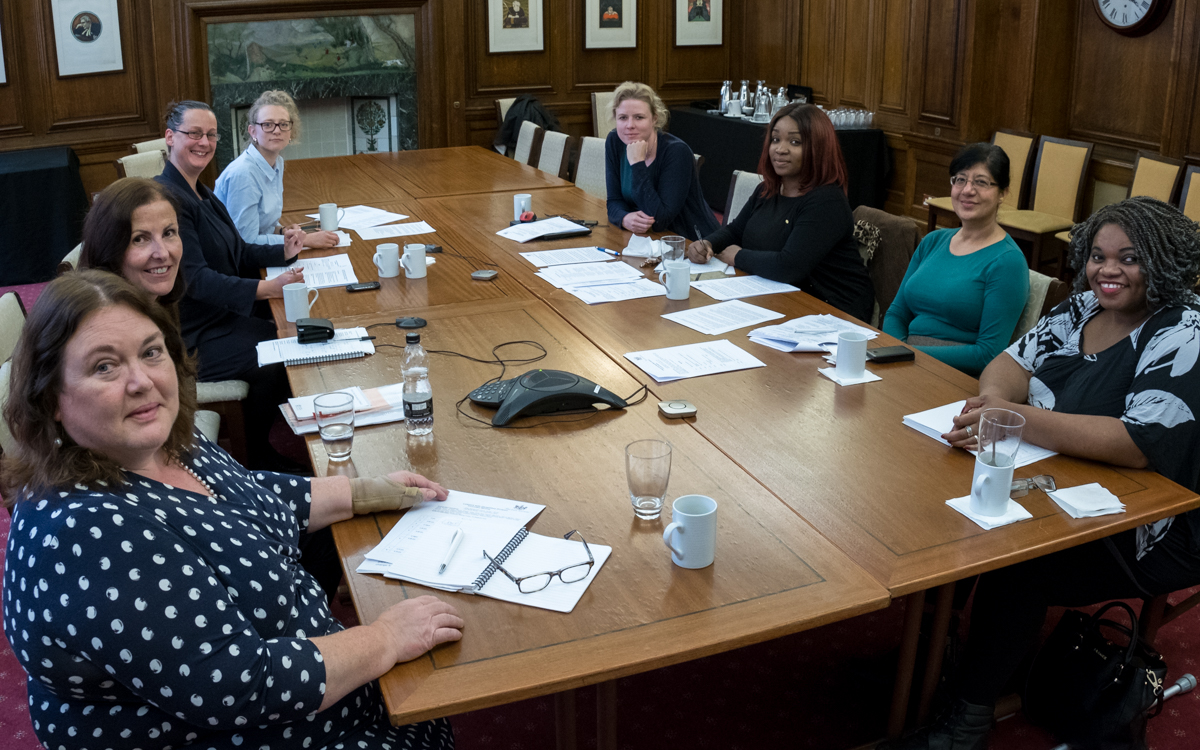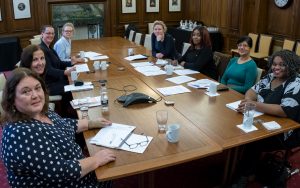Are you a disabled person, or someone with a long-term medical condition working in, aspiring to work in (e.g. in training), or retired from the Bar? If so, this research is for you.
We are pleased to launch the next stage of the research with a questionnaire for disabled people training for or working as Barristers. This also includes those who have since left these roles in the profession.
Click here to fill in the survey for barristers.
Update: the extended deadline for responses is 23rd July 2019.
A separate questionnaire for solicitors and paralegals is also available. This is due to the different qualification routes and workplace experiences.
If it is more appropriate to fill in the questionnaire for solicitors and paralegals please click here. If you are unsure as to which is best suited for you, please contact Dr Natasha Hirst on HirstN2@cardiff.ac.uk
The purpose of the research is to produce the first large scale evidence base on the career experiences of disabled people across the legal profession. This will build on and quantify the evidence obtained from one to one interviews.
We anticipate that it will take approximately 20 to 25 minutes to complete the questionnaire. It can also be saved part way and finished off later. You have the option to skip questions or answer ‘not applicable’ as appropriate to you.
If you have any queries or require the questionnaire in a word document or other accessible format please get in touch with Dr Natasha Hirst on HirstN2@cardiff.ac.uk
Please note that both researchers are part-time on the project and will respond as soon as possible to any queries.


